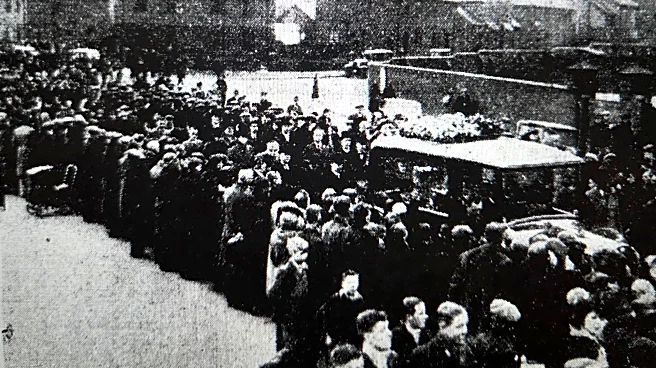What's Happening?
The Trump administration has implemented a significant policy change within Immigration and Customs Enforcement (ICE), eliminating the requirement for officers to complete detailed paperwork before conducting immigration arrests. This paperwork, known as the field operations worksheet, included information such as the target's name, appearance, known addresses, employment, immigration history, and any criminal history. The removal of this requirement marks a shift from targeted enforcement to broader street sweeps, as ICE aims to increase arrest numbers. This change has been communicated from the Department of Homeland Security (DHS) leadership, with the rationale being that the worksheet was considered inefficient. However, some ICE officers continue to use the worksheets due to concerns about future legal liability. The policy shift aligns with President Trump's promise to conduct mass deportations, despite ICE's stated focus on detaining immigrants with criminal histories.
Why It's Important?
The elimination of pre-arrest paperwork by ICE under the Trump administration has significant implications for immigration enforcement practices in the U.S. This shift could lead to increased arrests and deportations, impacting immigrant communities, particularly in cities like Chicago and Los Angeles. The policy change may also raise concerns about racial profiling and arbitrary stops, as ICE officers are now conducting broader sweeps in areas frequented by immigrants. The move could affect public perception of ICE and its operations, potentially leading to legal challenges and public protests. Additionally, the lack of detailed pre-arrest documentation may expose ICE officers to legal risks, as they could face lawsuits for civil rights violations if arrests are made without probable cause.
What's Next?
The policy change is expected to result in increased immigration enforcement operations, particularly in cities with large immigrant populations. ICE is reportedly preparing for crackdowns in Chicago and Boston, with additional agents being brought in to conduct arrests. The Supreme Court recently lifted a temporary restraining order that had blocked ICE from conducting certain patrols in Los Angeles, which may lead to a resurgence of enforcement activities in the area. As ICE continues to prioritize arrest numbers, legal challenges and public scrutiny are likely to increase. Advocacy groups and legal experts may push for more oversight and accountability in ICE operations, potentially influencing future policy decisions.
Beyond the Headlines
The shift in ICE's enforcement strategy under the Trump administration highlights broader ethical and legal concerns regarding immigration policy in the U.S. The move away from targeted enforcement to broader sweeps raises questions about the balance between national security and civil liberties. The potential for racial profiling and arbitrary arrests could exacerbate tensions between immigrant communities and law enforcement, impacting social cohesion and trust in government institutions. Long-term, this policy change may influence the national debate on immigration reform, prompting discussions on the need for comprehensive and humane immigration policies.











